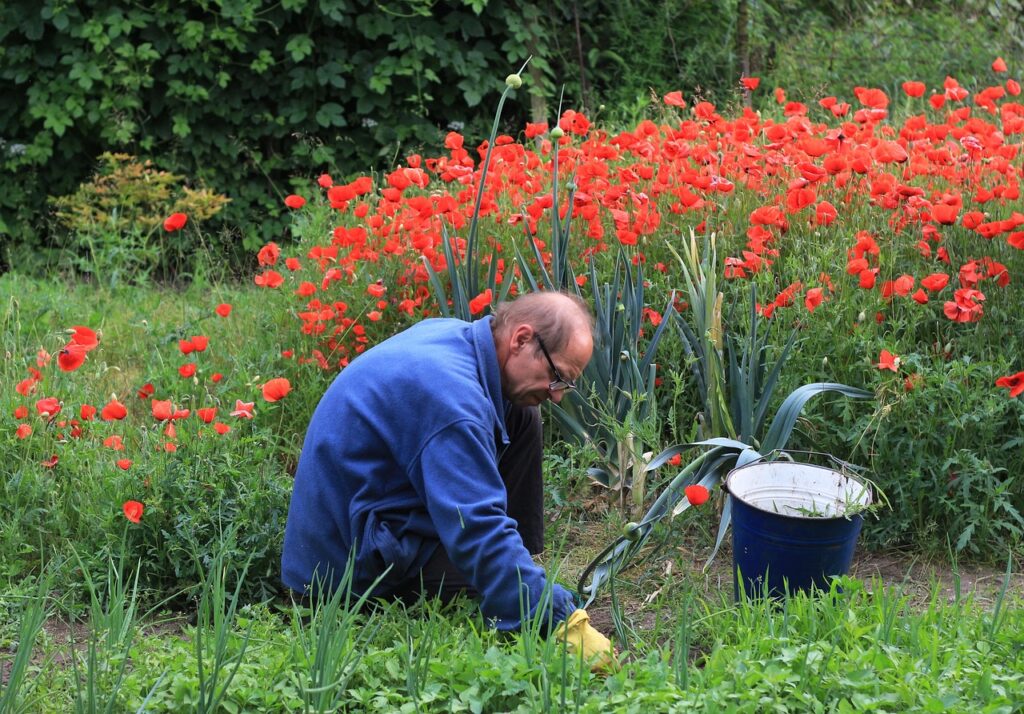In the pursuit of a lush, green garden, the battle against weeds is a constant challenge. While there are numerous chemical solutions on the market and it may seem ‘easier’ to grab your spray gun and ‘Roundup’, there are many reasons you shouldn’t, and why many garden enthusiasts are now turning to organic weed control for a more sustainable and environmentally friendly approach. In this comprehensive guide, we’ll explore the reasons why organic weed control is gaining popularity, the environmental impact of traditional methods, and provide you with a plethora of organic alternatives to create a thriving, sustainable garden haven.
Why Choose Organic Weed Control?
-
Environmental Impact: One of the primary reasons to opt for organic weed control is its minimal impact on the environment. Traditional herbicides often contain harsh chemicals that can leach into the soil, contaminating water sources and harming beneficial organisms. Organic methods, on the other hand, work in harmony with the environment, preserving the delicate balance of your garden ecosystem.
-
Healthier Soil: Chemical herbicides can deplete the soil of essential nutrients, adversely affecting plant growth. Organic weed control methods nourish the soil, promoting a healthier, more robust foundation for your plants. This not only benefits your immediate garden but contributes to the overall health of the earth.
-
Safety for Pets and Humans: Traditional herbicides pose a risk to the health of pets, children, and even adults. Organic weed control methods eliminate this concern, providing a safe environment for everyone who enjoys your outdoor space. There’s peace of mind in knowing that your garden is a haven, free from harmful chemicals.
-
Biodiversity Preservation: Organic weed control supports biodiversity by preserving the habitat of beneficial insects, birds, and microorganisms. Chemical herbicides can disrupt this delicate balance, leading to a decline in beneficial species and potentially creating a cascade effect throughout the ecosystem.
-
Long-Term Sustainability: Choosing organic weed control is an investment in the long-term sustainability of your garden. Chemical herbicides may offer quick results, but they often provide only a temporary fix. Organic methods focus on addressing the root causes of weed growth, leading to more sustainable, lasting solutions.
Organic Weed Control Methods
Now that we’ve explored the compelling reasons to embrace organic weed control let’s delve into some effective methods to keep your garden weed-free without compromising on sustainability.
Mulching: Mulching is a time-tested organic method that involves covering the soil around plants with a layer of organic material. This not only suppresses weed growth by blocking sunlight but also helps retain soil moisture and regulate temperature. Organic mulch options include straw, wood chips, or shredded leaves and it’s also a great way to use up some of that kitchen compost that you’ve been making too!
Hand Weeding: While it may seem labor-intensive, hand weeding is a highly effective and organic way to control weeds. Regularly inspect your garden and manually remove weeds before they have a chance to spread and compete with your plants for nutrients.
Vinegar Solution: A mixture of vinegar, water, and a few drops of dish soap can be an effective organic weed killer. Spray this solution on weeds on a sunny day, and the acidity of the vinegar will help break down the cell structure of the weeds, causing them to wither.
Boiling Water: Boiling water is a simple yet powerful way to eliminate weeds. Pouring boiling water directly onto weeds will scald and kill them without introducing any harmful substances into your garden.
Corn Gluten Meal: Corn gluten meal is not just a nutrient-rich fertilizer; it also acts as a natural pre-emergent herbicide. Sprinkle corn gluten meal around the base of your plants to prevent the germination of weed seeds.
Neem Oil: Neem oil is a natural pesticide with herbicidal properties. It disrupts the life cycle of weeds, inhibiting their growth. Mix neem oil with water and a few drops of dish soap, and spray it on weeds for an eco-friendly solution.
Flame Weeding: Flame weeding involves using a propane torch to pass over weeds briefly, causing them to wilt and die. This method is effective for weed control in pathways and between garden rows.
Cover Crops: Planting cover crops like clover or buckwheat can help suppress weed growth by outcompeting them for sunlight, water, and nutrients. Cover crops also improve soil health, making them a win-win solution for a vibrant garden.
In the pursuit of a thriving garden, organic weed control emerges as the sustainable and environmentally responsible choice. By choosing organic methods, you not only create a safe and healthy space for yourself, your family, and your pets but also contribute to the larger goal of preserving our planet’s delicate ecosystems. Embrace the power of organic weed control, and watch as your garden transforms into a sustainable oasis that flourishes for generations to come.



